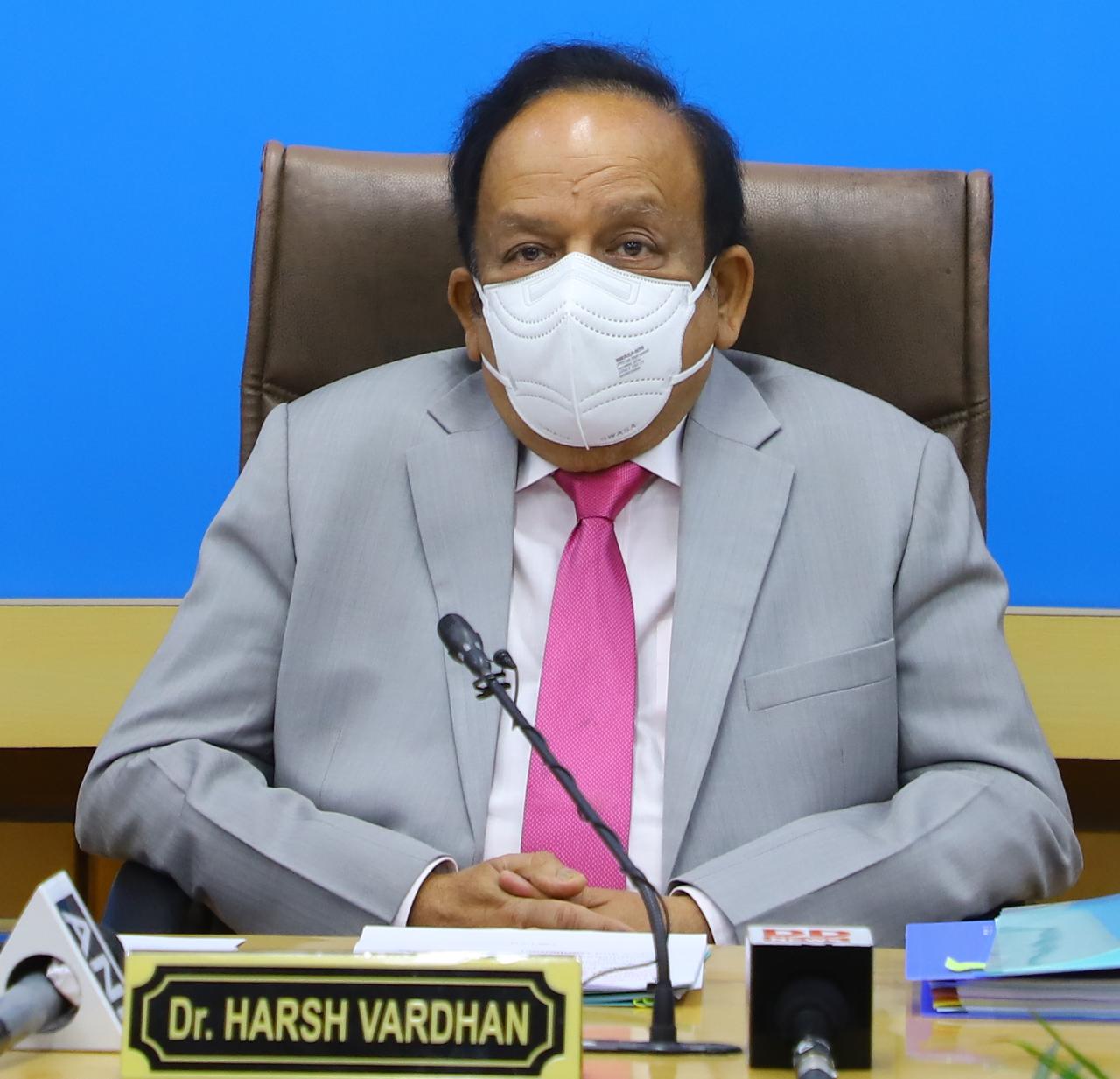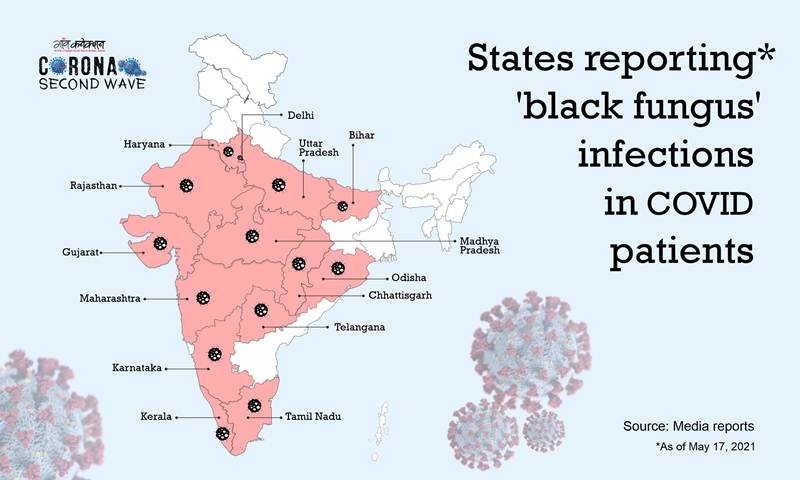5,424 ‘black fungus’ cases in India; 84% had COVID history and 55% diabetic: health minister Harsh Vardhan
The Union Health Minister informed the majority of the black fungus cases are reported from Gujarat and Maharashtra. Meanwhile today, the first cases of yellow fungus was reported in Uttar Pradesh.


Union Health Minister Harsh Vardhan. Photo: Twitter
A total of 5,424 cases of mucormycosis, commonly known as ‘black fungus’, have been reported from 18 states, said Union Health Minister Harsh Vardhan today during a virtual meeting with a group of ministers on the COVID19 pandemic.
“Of the 5,424 cases of Mucormycosis, we have seen that 4,556 cases have a history of COVID19 infection, while 875 cases are amongst non-COVID patients. Diabetes was present in 55 per cent of the patients,” he said.
As per the minister, majority of cases were reported from Gujarat and Maharashtra. “Gujarat reported 2,165 cases [about 40 per cent], Maharashtra reported 1,188 cases, Uttar Pradesh 663, Madhya Pradesh 590, Haryana 339, and Andhra Pradesh 248 cases,” Vardhan said.
Free mucormycosis treatment in Maharashtra
Today, the Maharashtra government announced free treatment for mucormycosis cases in the state. The state government informed the Aurangabad bench of the Bombay High Court that patients will receive free treatment for mucormycosis at pre-identified hospitals and nursing homes across Maharashtra under two schemes — Mahatma Jotiba Phule Jan Aarogya Yojana and the Pradhan Mantri Jan Arogya Yojana.
Around 500 cases of mucormycosis have been reported in the national capital Delhi, Chief Minister Arvind Kejriwal said today. “The city has been grappling with a shortage of Amphotericin-B injection used in its treatment,” he highlighted.
Mucormycosis, a life-threatening infection, prevailing in COVID-19 patients or those recently recovered from the disease, has been declared as an epidemic in the country. The Union health ministry has directed all the states to make it a notifiable disease under the Epidemic Disease Act 1897. Nineteen states including Haryana, Rajasthan, Telangana and Tamil Nadu, have already done it.
‘Black fungus’ infection
Black fungus usually affects nasal passage, oral cavity and the infection can possibly reach the brain as well.
Several states across the country have been reporting a rise in the black and white fungus cases for the past few days.

In a media briefing today Randeep Guleria, director of New Delhi-based All India Institute of Medical Sciences (AIIMS) and a member of India’s COVID task force stated that irrational use of steroids has been a contributing factor in Covid-Associated Mucormycosis (CAM).
“We have been warning, issuing advisories and, through our experts, it has been communicated that indiscriminate use of steroids must be avoided and diabetes must be treated thoroughly as best as possible,” Vardhan said today.
“Nine lakh vials of Amphotericin-B are being imported by the central government for the treatment of black fungus. Of this, 50,000 vials have been received and around three lakh vials will be available in the next seven days,” he said.
Amid these rising fungal infections, another fungus ‘yellow fungus’ was reported today. The first case has surfaced at a hospital in Uttar Pradesh’s Ghaziabad.
So far, there is no specific official acknowledgment about the occurrence of yellow fungus by the government.
“Yellow fungus is an opportunistic pathogen. It creates a disease condition in people whose immunity is lower,” Meghana Kulkarni, head of the department of microbiology at Pune-based Fergusson College, told Gaon Connection.
“Fungi of different colours are infecting people due to the different types of species that have begun to affect human beings as a result of fall in general immunity due to COVID19,” the microbiologist added.

